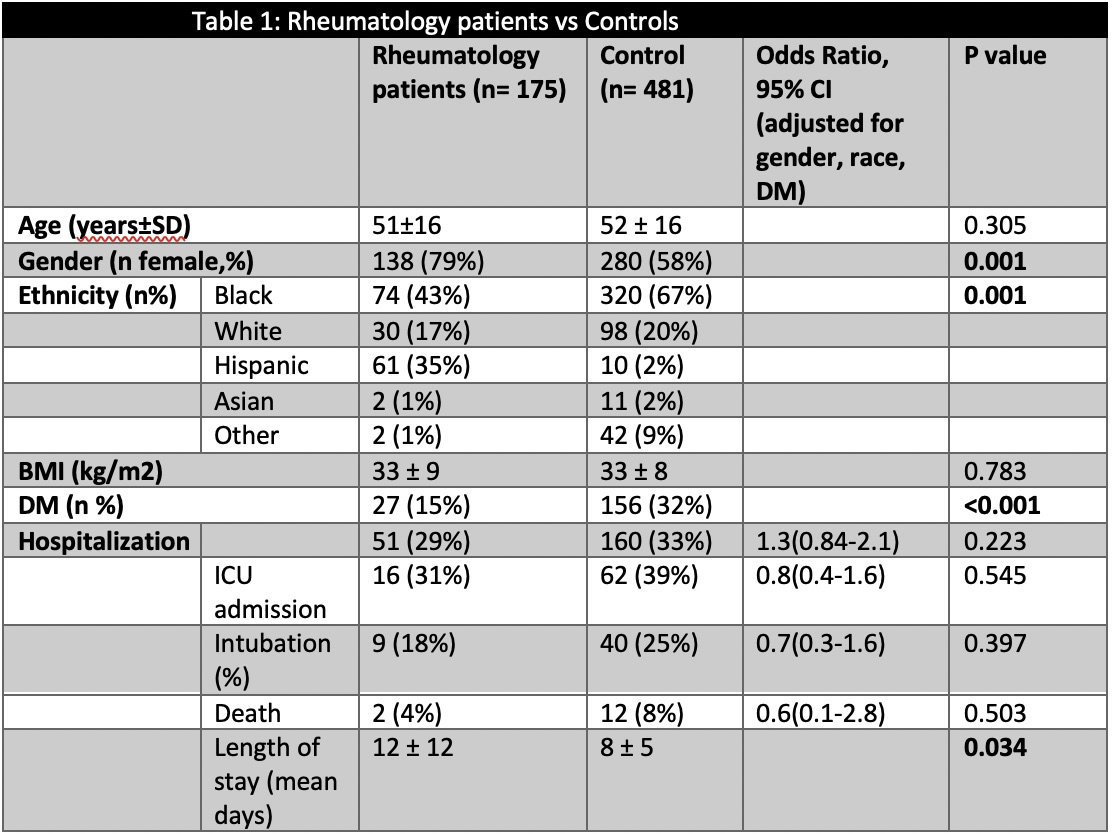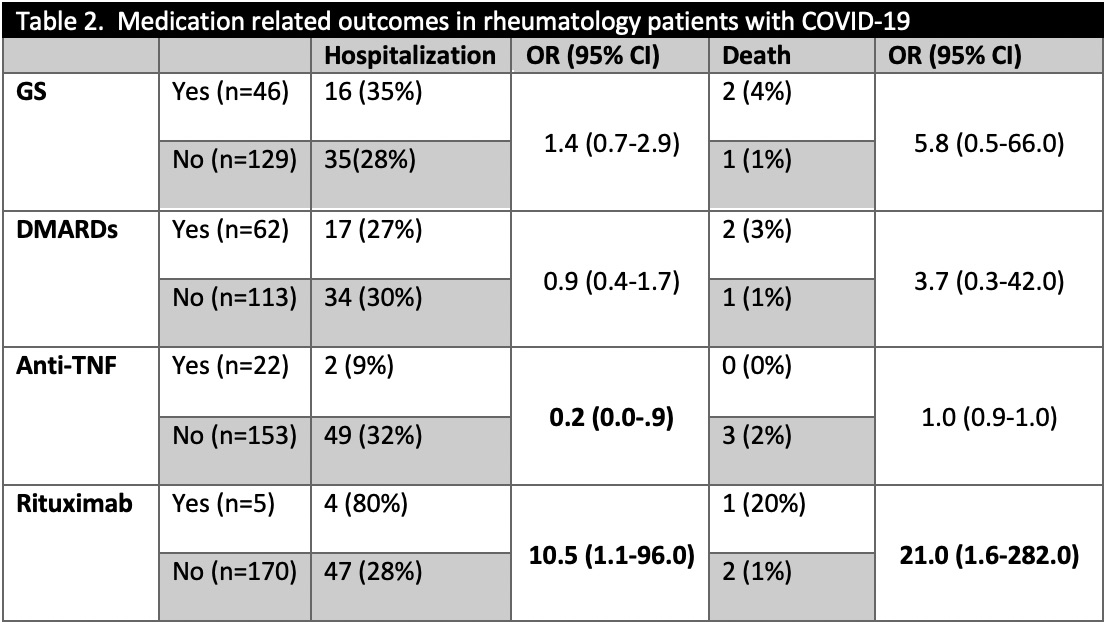Session Information
Session Type: Poster Session D
Session Time: 8:30AM-10:30AM
Background/Purpose: The COVID-19 pandemic has been particularly concerning for patients with rheumatologic conditions because they are potentially predisposed to more severe outcomes. Studies have suggested that higher steroid dose, rituximab and certain DMARDs were associated with worse COVID-19 outcomes while TNF-inhibitors were associated with better outcomes. However, more studies are needed to confirm these trends particularly in more diverse patient populations. Here, we evaluate a predominantly Black and Hispanic cohort of rheumatology patients with COVID-19 compared to controls on their infection-related outcomes.
Methods: An urban academic medical center has a registry of patients with rheumatological conditions and laboratory confirmed COVID-19 as well as a separate repository of COVID-19 patients without rheumatic disease. Data collected included demographics, comorbidities, medications, hospitalization and hospital course. Chi-squared, independent samples t-test, and logistic regression were used for analyses.
Results: Results are summarized in Tables 1 and 2. 175 rheumatology patients (43 SLE, 52 RA, 26 psoriasis and psoriatic arthritis, 22 other connective tissue diseases, 32 other diagnoses including inflammatory arthritis and myositis) and 481 control patients were evaluated. Both groups had a substantial portion of Black patients while the rheumatology group also included a significant number of Hispanic patients. Prevalence of DM was higher in the control group.
Patients with rheumatic disease had longer length of stay in the hospital (p=0.034), however, overall did not have increased odds of hospitalization, ICU admission, intubation, or death even after adjustment for confounders. GC and DMARD use were not associated with overall outcomes. There was decreased odds of hospitalization with use of TNF-inhibitors. Rituxan use was associated with increased odds of hospitalization and death.
Conclusion: This predominantly Black and Hispanic cohort of rheumatology patients with COVID-19 had very comparable outcomes overall to those without rhematic disease. TNF-inhibitor use was associated with decreased risk of hospitalization while rituximab use was associated with increased risk of hospitalization and death. These results are reassuring for our patients overall but suggest that we need to continue to evaluate subsets of our patients on specific therapies for potentially better or worse outcomes. Continued sharing of data across the country and world will be invaluable in helping us provide appropriate guidance and management for our patients.
To cite this abstract in AMA style:
Grant M, Orentas M, Hassan S, Khandelwal S, Moore D, Shakoor N. Experience from a Diverse Rheumatology Cohort with COVID-19: Are We Doing Better Than We Expected? [abstract]. Arthritis Rheumatol. 2021; 73 (suppl 9). https://acrabstracts.org/abstract/experience-from-a-diverse-rheumatology-cohort-with-covid-19-are-we-doing-better-than-we-expected/. Accessed .« Back to ACR Convergence 2021
ACR Meeting Abstracts - https://acrabstracts.org/abstract/experience-from-a-diverse-rheumatology-cohort-with-covid-19-are-we-doing-better-than-we-expected/


